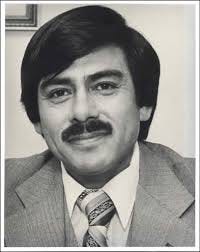John Trevino and the War on Poverty
The Firsts project
John Trevino was a First. PHIT, a while back, worked on a project collecting stories of Firsts—the First of their race or gender or sexual orientation to be elected to public office. This project was originally sponsored by Austin Community College and it was designed to encourage folks to be the First, even if it is the First in the family to go to college. PHIT is voluntarily continuing this valuable project.
The stories of the Firsts are dramatic. This substack will present just one episode in the saga of John Trevino, who was the First Hispanic City Council member of Austin Texas.
PHIT has interviewed Trevino a number of times. Once as part of the Legal Aid documentary. Once as part of the Economy Furniture Strike. Once for the Montopolis documentary. Once as a First.
This substack is based on the Legal Aid Documentary.
In the early 60s, Trevino worked for Miller Blue Print. Through the Church, he was also active in the Saint Vincent de Paul Society, helping the poor, person-to-person.
“As a matter of routine, I'd get off of work and I'd come home and get a bite to eat and then go to the parish office and find out families that needed food or whatever they needed.”
“In early '65, there was a conference announced in Tucson, Arizona, and it was something called Conference on Poverty in the Southwest. And so we were invited.”
“I think it was a congressional hearing or something. Because I remember that that meeting was attended by none other than Hubert Humphrey. They wanted someone to testify about poverty in Austin. So I was selected by the group to give testimony.”
[In January 1965…the War on Poverty programs were just getting formulated. One year earlier, LBJ had given the state of the union and proposed the War on Poverty….Legal Aid was one segment, model cities was another, and VISTA was a third. Other elements included food stamp, social security reforms, medicare. All of this was in reaction to Michael Harrington’s publishing his 1962 study on hunger and poverty in the United States called The Other America. He pointed out that in affluent America, 25% of the population fell below the poverty line. It was surprisingly a best seller. Perhaps a literary comparison of The Other America and Hillbilly Elegy might be a useful exercise.]
Some people criticized LBJ’s War on Poverty because, well, it didn’t solve poverty. It didn’t win that particular war.
Trevino says, “Bunk. I ask what the hell did you do?”
He complained that there were never enough resources. “You just can't do a program with limited funds, limited resources, and try to eradicate poverty that has existed for hundreds of years over a period of ten years.”
Another element of the War on Poverty programs was the federal government support of VISTA volunteers to go into communities to help…kind of like a publicly paid Saint Vincent De Paul Society. Trevino had impressed folks about his knowledge and understanding of the conditions of poverty and he was selected to be the Head of the Community Center.
“We had the VISTA volunteers. Later on I became a supervisor of the program here in Austin. The VISTA volunteers, when I was in charge of them, we had some outstanding young folks.”
“When I was hired, I told a friend of mine, I said, ‘I'm the luckiest guy in the world because I'm getting to do what I enjoy doing and I'm getting paid for it.’ ”
Trevino didn’t work for Legal Aid but he worked with them.
“I lived in the neighborhood and one of the things I remember was all of these young men and women that came in… is that they had enthusiasm. They had passion. They did a lot of good work.”
Legal Aid was a great help.
“A lot of families were being hassled by landlords, you know, and that was always a problem for us. They didn't understand contracts. So a lot of the stuff that came in to me was, you know, legal problems that did not have to do with criminal activities.”
“The Johnson administration came in and said first I want to acknowledge we have poverty in our country. Hey nobody ever said that before. We knew it but nobody said it. The people that are very affluent live in another community. They never see this. They're not exposed to it. So now you had an administration and top government officials that said, "We have a problem."
“And part of the problem is that people don't have access to legal resources. When you give them a head start, when you give them, daycare, when you give them other kinds of things, then people begin to say, "Hey, you know, I want to go and see that lawyer about my landlord hassling me or see a lawyer about getting a divorce.”
“Even if it is a government program, you don't just barge into a legal office downtown and say, I want you to help me. “
“But… Here you had an office located in the neighborhood. Here you had an office of willing attorneys to listen to your problem. And they're not going to charge you. I mean, that was a godsend.”



